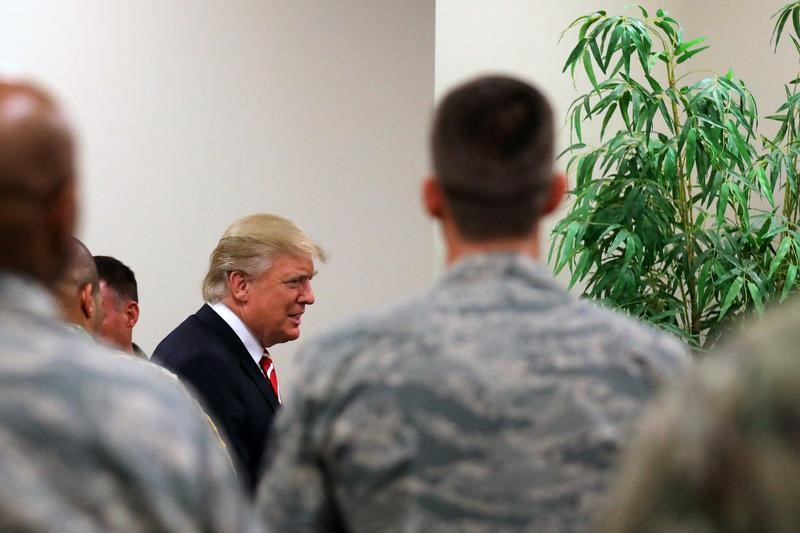By Yeganeh Torbati
WASHINGTON (Reuters) - More than 120 retired U.S. generals and admirals urged Congress on Monday to fully fund U.S. diplomacy and foreign aid, the same government functions expected to be targeted for cuts in President Donald Trump's first budget proposal.
A White House budget official said on Monday that Trump would seek to boost military spending by $54 billion and cut the same amount from non-defense spending, including a large reduction in foreign aid.
In a letter addressed to Republican House Speaker Paul Ryan, Democratic House Minority Leader Nancy Pelosi, Republican Senate Majority Leader Mitch McConnell, and Democratic Senate Minority Leader Chuck Schumer, the retired officers wrote that "elevating and strengthening diplomacy and development alongside defense are critical to keeping America safe."
(Click here for a copy of the letter:
"We know from our service in uniform that many of the crises our nation faces do not have military solutions alone," they wrote. "The State Department, USAID, Millennium Challenge Corporation, Peace Corps and other development agencies are critical to preventing conflict and reducing the need to put our men and women in uniform in harm's way."
The letter was signed by some of the most prominent U.S. military officers to serve in recent decades, including retired General George Casey, former chief of staff of the U.S. Army; retired General David Petraeus, the former CIA director and commander of troops in Iraq and Afghanistan; retired Marine General Anthony Zinni, the former commander of U.S. Central Command; retired U.S. Navy Admiral James Stavridis, the former supreme allied commander of NATO; and retired General Keith Alexander, the former director of the National Security Agency.
The letter was organized by the U.S. Global Leadership Coalition, which advocates for robust U.S. spending in diplomacy and foreign aid and which published the letter online on Monday.

U.S. military spending stands at roughly $600 billion annually. By contrast, the United States spends about $54 billion per year on its "International Affairs" budget, which includes the State Department and foreign assistance programs.